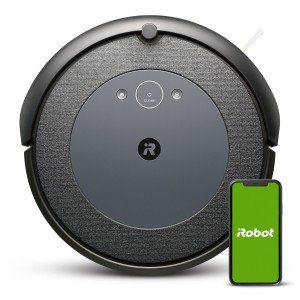Understanding Floor Robots: The Future of Home Cleaning
Over the last few years, technological advancements have actually substantially transformed the landscape of household cleaning. Amongst the most significant developments is the floor robot, a device that has actually rapidly gotten appeal for its benefit and efficiency. This post intends to check out the various aspects of floor robots, their functionality, benefits, popular models, and some often asked concerns to help consumers make notified choices.
What is a Floor Robot?
A floor robot, commonly referred to as a robotic vacuum, is an automated gadget designed to navigate floors and get rid of dirt, dust, and particles. Unlike conventional vacuum cleaners, floor robots operate autonomously, offering a hassle-free cleaning experience. These smart machines make use of sensing units, mapping innovations, and advanced algorithms to tidy various surfaces, including wood, tile, and carpet.
How Do Floor Robots Work?
Floor robots operate through a mix of software and hardware parts. Here are the essential features that enable their functionality:
1. Sensing units
- Challenge Detection: Floor robots have integrated sensors that assist them identify barriers, enabling them to navigate around furnishings and prevent falls.
- Cliff Sensors: These avoid the robot from dropping stairs or ledges by acknowledging changes in elevation.
2. Navigation and Mapping
- Visual Mapping: Some innovative designs utilize electronic cameras and laser technology to create comprehensive maps of the cleaning location.
- Synchronised Localization and Mapping (SLAM): This strategy assists the robot track its place and effectively prepare its cleaning route.
3. Cleaning Mechanisms
- Suction Power: Most robotic vacuums use a suction system to capture dirt and dust, which is then saved in an onboard dustbin.
- Brushing Systems: Many models come geared up with turning brushes or mops for improved cleaning capabilities, particularly on carpets or tough surface areas.
4. Smart Features
- Connection: Many floor robots support Wi-Fi connectivity, permitting users to manage them through mobile phone apps or smart home systems.
- Scheduling: Users can set up cleaning times, ensuring their homes are tidy even when they're not there.
5. Self-governing Charging
- Self-Docking: Most robots automatically return to their charging station once their battery runs low, ensuring they're always prepared to tidy.
Benefits of Using a Floor Robot
The adoption of floor robots comes with many benefits that make them appealing to users:
1. Convenience
Floor robots can clean while users address other jobs, allowing for multitasking and time-saving.
2. Increased Efficiency
Robotic vacuums typically cover more ground in less time compared to standard methods, thanks to their organized cleaning patterns.
3. Consistent Cleaning Routine
Users can set up regular cleansings, ensuring that their homes remain tidy without needing day-to-day intervention.
4. Availability
Robotic vacuums can easily access hard-to-reach locations, such as under furnishings or in tight areas.
5. Advanced Features
Lots of models come geared up with features like voice control and app combination, boosting functionality and availability.
Popular Floor Robots
When thinking about a floor robot, different brands and models accommodate various needs and budget plans. Here's a quick introduction of some leading options:
| Brand | Model | Secret Features | Price Range |
|---|---|---|---|
| iRobot | Roomba i7+ | Smart mapping, self-emptying dock | ₤ 600 - ₤ 800 |
| Roborock | Roborock S7 | Sonic mopping, challenge avoidance | ₤ 500 - ₤ 700 |
| Neato | Neato D7 | D-shape design, advanced suction | ₤ 600 - ₤ 800 |
| Ecovacs | Ecovacs Deebot T8 | Mopping function, advanced mapping | ₤ 600 - ₤ 800 |
| Shark | Shark IQ Robot | Self-emptying base, home mapping | ₤ 400 - ₤ 600 |
(Note: Prices might differ based on sellers and continuous promos.)
Often Asked Questions (FAQs)
1. Are floor robots effective on carpets?
Yes, a lot of modern-day floor robots are developed to clean various surface areas, including carpets. the best robot vacuum cleaner with strong suction and turning brushes are especially effective at picking up pet hair and ground-in dirt.
2. How frequently should I run my floor robot?
This depends upon your family's needs. For homes with pets or high foot traffic, everyday or every other day cleaning might be advantageous. For quieter homes, running the robot once a week may be adequate.
3. Can I manage my floor robot remotely?
Numerous floor robots feature smart device apps that enable users to control their gadgets from another location, schedule cleansings, and display performance.
4. Do I need to empty the dustbin often?
A lot of robots require routine emptying of the dustbin, particularly in homes with pets or heavy soil. However, some designs use self-emptying abilities, which minimize user involvement.
5. Are floor robots suitable for all kinds of floor covering?
Most floor robots are reliable on numerous surfaces, consisting of hardwood, tile, and low-pile carpets. Nevertheless, some may carry out better on particular surface areas, so it's important to choose a design suited to your home's needs.
As households continue to welcome technology, floor robots have actually emerged as essential cleaning buddies, providing benefit, effectiveness, and advanced functions. Understanding their performances, advantages, and readily available models enables consumers to choose the right floor robot to satisfy their particular cleaning needs. By purchasing this innovative technology, homeowners can guarantee their living spaces remain tidy and comfortable with minimal effort.

